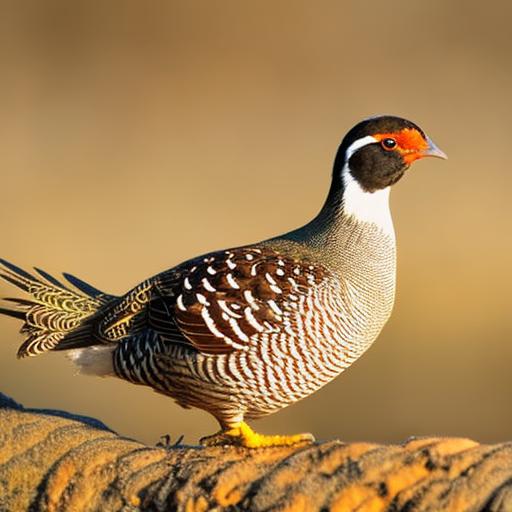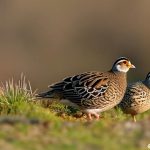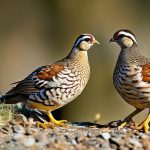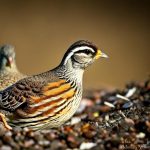Quail farming is a relatively new but rapidly growing industry in Zambia. The demand for quail products, such as meat and eggs, has been steadily increasing due to their nutritional value and health benefits. Quails are small birds that are easy to raise and require minimal space and resources, making them an ideal choice for small-scale farmers and backyard enthusiasts. In Zambia, quail farming has become a popular venture for both rural and urban farmers, providing an additional source of income and food security.
Quails are known for their fast growth rate and high reproductive potential, making them a profitable investment for farmers. Additionally, quails are resilient birds that can adapt to various environmental conditions, making them well-suited for the Zambian climate. With the right knowledge and resources, quail farming has the potential to contribute significantly to the agricultural sector in Zambia. This article will provide a comprehensive guide to quail farming in Zambia, covering various aspects such as choosing the right quail breeds, housing and space requirements, feeding and nutrition, health and disease management, breeding and reproduction, as well as marketing and selling quail products.
Key Takeaways
- Quail farming is a growing industry in Zambia, offering a sustainable source of income and nutrition.
- When choosing quail breeds for Zambia, consider factors such as adaptability to local climate and egg production.
- Quails in Zambia require proper housing and space to ensure their well-being and productivity.
- Feeding and nutrition for quails in Zambia should include a balanced diet of grains, protein, and essential nutrients.
- Health and disease management are crucial for quail farming in Zambia, requiring regular monitoring and proper sanitation practices.
- Understanding the breeding and reproduction of quails is essential for maintaining a sustainable quail farming operation in Zambia.
- Marketing and selling quail products in Zambia can be done through local markets, restaurants, and direct sales to consumers.
Choosing the Right Quail Breeds for Zambia
When starting a quail farm in Zambia, it is essential to choose the right quail breeds that are well-suited for the local climate and market demand. There are several quail breeds to consider, each with its own unique characteristics and advantages. In Zambia, the most popular quail breeds for farming are the Japanese quail (Coturnix japonica) and the Bobwhite quail (Colinus virginianus). Japanese quails are known for their high egg production and fast growth rate, making them an excellent choice for commercial egg and meat production. On the other hand, Bobwhite quails are valued for their flavorful meat and are often preferred by consumers for their culinary purposes.
When selecting quail breeds for farming in Zambia, it is important to consider factors such as adaptability to local conditions, disease resistance, and market preferences. Japanese quails are well-adapted to the Zambian climate and are relatively resistant to common quail diseases, making them a practical choice for farmers. Bobwhite quails, on the other hand, may require more specialized care but can cater to niche markets that value their unique meat quality. Ultimately, the choice of quail breed will depend on the farmer’s production goals, market demand, and available resources.
Housing and Space Requirements for Quails in Zambia
Proper housing and space requirements are crucial for the successful rearing of quails in Zambia. Quails are social birds that thrive in groups, so it is important to provide adequate space for them to move around and interact with each other. When constructing a quail house or coop, it is essential to consider factors such as ventilation, insulation, and protection from predators. In Zambia, where temperatures can fluctuate significantly throughout the year, it is important to provide adequate ventilation to prevent heat stress during the hot season and ensure insulation to protect the birds from cold temperatures during the cooler months.
The space requirements for quails will depend on the breed and age of the birds, as well as the intended purpose of the farm (e., egg production or meat production). As a general guideline, each quail should be provided with at least 1 square foot of space in the coop to ensure comfort and minimize stress. Additionally, it is important to provide nesting boxes for egg-laying quails and perches for roosting. Proper sanitation and waste management are also essential to maintain a healthy living environment for the birds. By ensuring adequate housing and space requirements, farmers can promote the well-being and productivity of their quail flock in Zambia.
Feeding and Nutrition for Quails in Zambia
Feeding and nutrition play a critical role in the growth, health, and productivity of quails in Zambia. Quails are omnivorous birds with specific dietary requirements that must be met to ensure optimal growth and egg production. A well-balanced diet for quails should consist of high-quality commercial feed supplemented with fresh greens, grains, and protein sources. In Zambia, commercial quail feed is readily available in the market and is formulated to meet the nutritional needs of quails at different stages of growth.
For egg-laying quails, it is important to provide a diet that is rich in calcium to support strong eggshell formation. This can be achieved by supplementing their feed with crushed oyster shells or limestone. Additionally, providing access to clean water at all times is essential for quails to stay hydrated and maintain their overall health. Farmers should also be mindful of seasonal variations in feed availability and adjust their feeding practices accordingly. By ensuring a well-balanced diet and proper nutrition for their quails, farmers can maximize their growth potential and egg-laying capacity in Zambia.
Health and Disease Management for Quails in Zambia
Maintaining the health of quails is essential for sustainable farming practices in Zambia. Like all livestock, quails are susceptible to various diseases and health issues that can impact their well-being and productivity. Common health problems in quails include respiratory infections, parasitic infestations, and nutritional deficiencies. To prevent disease outbreaks, farmers should implement strict biosecurity measures, such as regular cleaning and disinfection of the coop, as well as monitoring the health of the flock on a regular basis.
In Zambia, it is important for farmers to work closely with veterinarians who have experience in poultry health management to develop effective disease prevention and treatment protocols. Vaccination programs may also be necessary to protect quails from common infectious diseases. Additionally, providing a stress-free environment with proper housing, nutrition, and sanitation can help boost the immune system of quails and reduce their susceptibility to diseases. By prioritizing the health and well-being of their quail flock, farmers can minimize the risk of disease outbreaks and ensure a sustainable farming operation in Zambia.
Breeding and Reproduction of Quails in Zambia

Breeding and reproduction are essential aspects of quail farming in Zambia, as they determine the sustainability and growth of the farm. Quails are prolific breeders that reach sexual maturity at a young age, making them highly efficient in terms of reproduction. To encourage successful breeding, farmers should provide a conducive environment with proper lighting, temperature control, and nesting areas for the birds. It is also important to maintain a balanced male-to-female ratio within the flock to ensure optimal mating behavior.
In Zambia, farmers may choose to implement natural breeding methods or use artificial insemination techniques to control breeding patterns and improve genetic traits within the flock. Proper record-keeping of breeding data, such as hatch rates and chick quality, can help farmers make informed decisions about their breeding programs. Additionally, providing adequate nutrition and care for breeding quails is crucial to ensure healthy offspring and sustainable production. By understanding the reproductive behavior of quails and implementing effective breeding strategies, farmers can maintain a consistent supply of birds for meat or egg production in Zambia.
Marketing and Selling Quail Products in Zambia
Marketing and selling quail products is an important aspect of running a successful quail farm in Zambia. With the increasing demand for quail meat and eggs due to their nutritional value and health benefits, there is a growing market opportunity for farmers to capitalize on. Farmers can explore various marketing channels such as local markets, supermarkets, restaurants, and direct-to-consumer sales to promote their quail products.
In Zambia, consumers are becoming more health-conscious and are seeking alternative sources of protein such as quail meat and eggs. Farmers can leverage this trend by highlighting the nutritional benefits of quail products through effective marketing strategies. Additionally, participating in agricultural fairs, food festivals, and trade shows can help farmers showcase their products to a wider audience and build brand recognition. Developing partnerships with local retailers or restaurants can also create opportunities for consistent sales of quail products.
Furthermore, farmers should prioritize product quality, packaging, and labeling to attract consumers and differentiate their products in the market. By establishing a strong brand presence and delivering high-quality quail products, farmers can build customer loyalty and drive sales in Zambia’s growing market for alternative protein sources.
If you’re interested in learning more about poultry farming, you might want to check out an article on PoultryWizard.com about the importance of chicken coop door size. This article provides valuable insights into creating the ideal environment for your chickens, which can also be beneficial when considering how to keep quails in Zambia. You can find the article here.
FAQs
What are quails?
Quails are small ground-dwelling birds that are often kept for their eggs and meat. They are known for their fast growth and high egg production.
What do quails eat?
Quails are omnivorous and eat a variety of foods including seeds, insects, and small plants. In captivity, they can be fed a commercial quail feed as well as fresh greens and insects.
How do I house quails in Zambia?
Quails can be housed in a simple cage or aviary with proper ventilation and protection from predators. The cage should be kept clean and dry to prevent disease.
What are the ideal conditions for keeping quails in Zambia?
Quails thrive in warm, dry conditions. They should be provided with a clean and dry living environment, as well as access to fresh water and a balanced diet.
How do I care for quail chicks?
Quail chicks require a warm and draft-free environment, as well as a high-protein diet to support their rapid growth. They should be protected from predators and provided with clean water at all times.
Are there any regulations for keeping quails in Zambia?
It is important to check with local authorities regarding any regulations or permits required for keeping quails in Zambia. This may vary depending on the location and scale of the quail operation.
Meet Walter, the feathered-friend fanatic of Florida! Nestled in the sunshine state, Walter struts through life with his feathered companions, clucking his way to happiness. With a coop that’s fancier than a five-star hotel, he’s the Don Juan of the chicken world. When he’s not teaching his hens to do the cha-cha, you’ll find him in a heated debate with his prized rooster, Sir Clucks-a-Lot. Walter’s poultry passion is no yolk; he’s the sunny-side-up guy you never knew you needed in your flock of friends!







